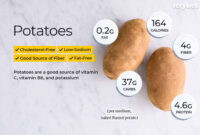When it comes to nutrition, eggs are often considered one of the best sources of essential vitamins and minerals. Not only are they versatile and delicious, but they also pack a powerful punch when it comes to providing our bodies with the nutrients they need to thrive.
Protein
Eggs are a fantastic source of high-quality protein. In fact, they contain all nine essential amino acids that our bodies cannot produce on their own. Protein is essential for building and repairing tissues, promoting muscle growth, and supporting a healthy immune system. A single large egg contains approximately 6 grams of protein, making it an excellent choice for those looking to increase their protein intake.
Vitamins
Eggs are rich in various vitamins that are essential for overall health and well-being. They are particularly high in vitamins A, D, E, and B12.
Vitamin A is important for maintaining healthy vision, promoting a strong immune system, and supporting cell growth. It also plays a crucial role in maintaining the health of our skin and mucous membranes.

Vitamin D is necessary for the absorption of calcium and phosphorus, which are vital for strong bones and teeth. It also helps regulate mood and supports the immune system.
Vitamin E is a powerful antioxidant that protects cells from damage caused by free radicals. It also supports a healthy immune system and helps maintain the health of blood vessels.
Vitamin B12 is essential for the formation of red blood cells and the maintenance of a healthy nervous system. It also plays a role in DNA synthesis and energy production.
Minerals
In addition to vitamins, eggs are also an excellent source of minerals such as iron, selenium, and zinc.
Iron is essential for the production of red blood cells and the transportation of oxygen throughout the body. It helps prevent iron-deficiency anemia and promotes energy production.
Selenium is a powerful antioxidant that helps protect cells from damage and supports thyroid function. It also plays a role in DNA synthesis and reproduction.
Zinc is involved in various enzymatic reactions in the body and is essential for immune function, protein synthesis, and wound healing.
Choline
Eggs are one of the best dietary sources of choline, a nutrient that is important for brain health and development. Choline plays a role in various processes in the body, including memory, muscle control, and mood regulation.
Conclusion
When it comes to nutrition, eggs are a powerhouse. They are packed with high-quality protein, vitamins, minerals, and choline, making them an excellent choice for those looking to boost their nutrient intake. Whether you enjoy them scrambled, poached, or in an omelet, eggs are a nutritious and versatile addition to any diet.


